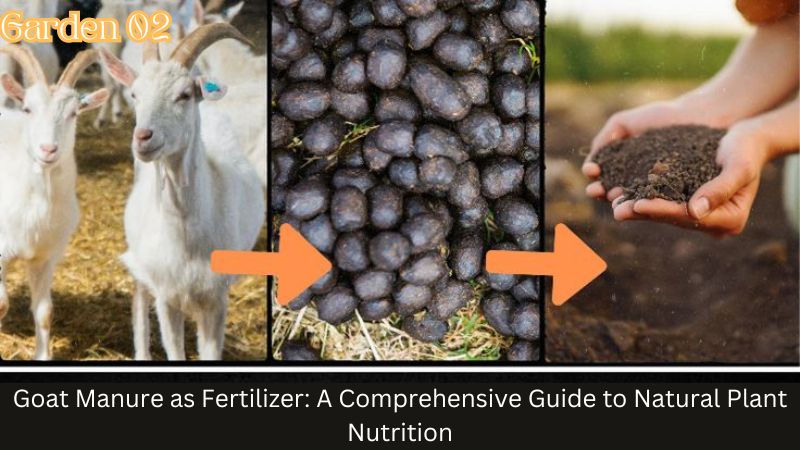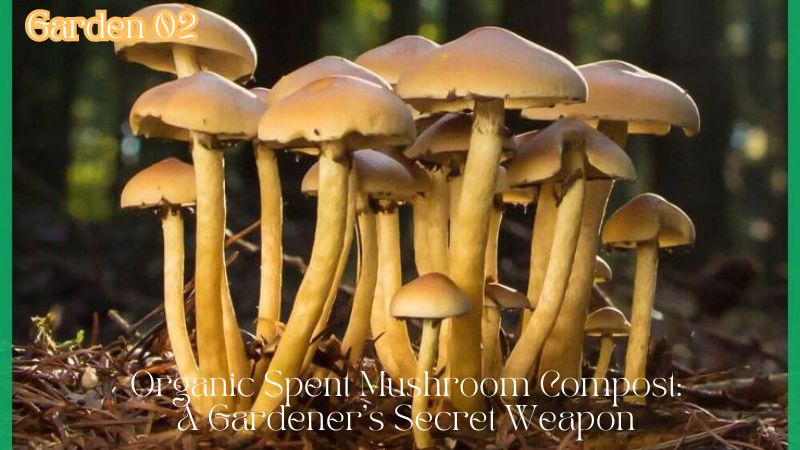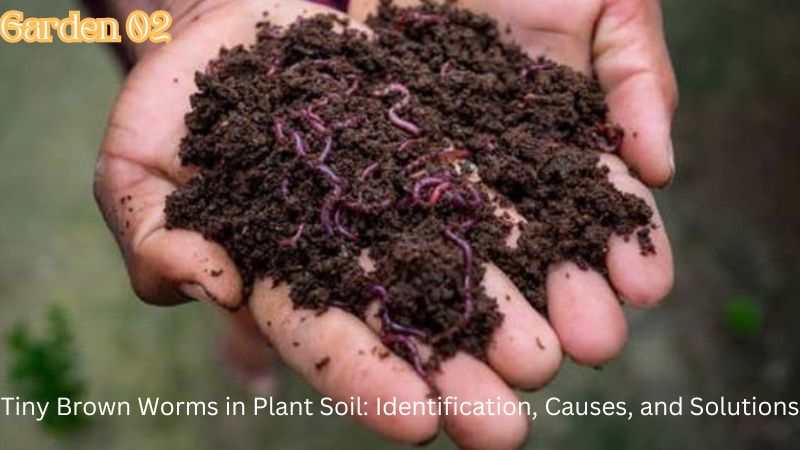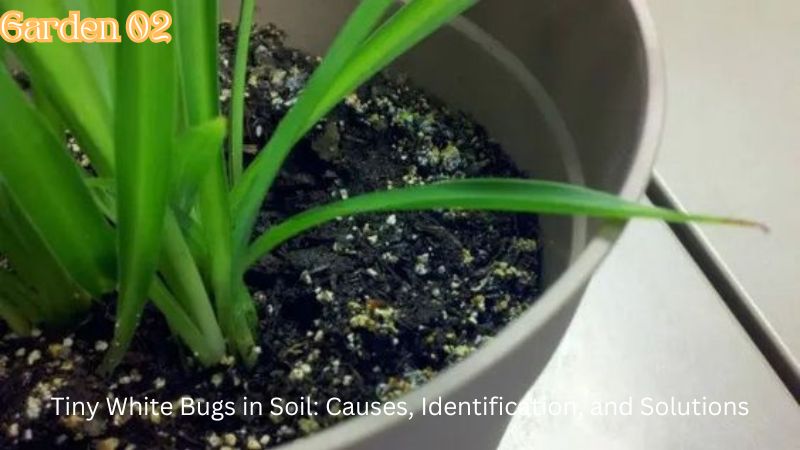Gardening
Goat Manure as Fertilizer: A Comprehensive Guide to Natural Plant Nutrition
When it comes to organic gardening, manure is often hailed as a natural powerhouse for nourishing the soil and boosting plant growth. Among the various types of animal manure used in agriculture, goat manure stands out as an excellent option for both home gardeners and large-scale farmers. Rich in nutrients and relatively easy to handle, goat manure can significantly improve soil health and plant vitality.
In this article, Garden 02 will explore the benefits of using goat manure as fertilizer, its nutrient profile, how to properly apply it, and its role in sustainable farming practices. Whether you’re new to organic gardening or looking to enhance your existing methods, goat manure offers a sustainable and efficient solution for improving soil fertility.
1. What Is Goat Manure?
Goat manure refers to the droppings of goats, which, like other forms of manure, can be used as a natural fertilizer for gardens, lawns, and agricultural fields. Unlike other types of animal manure, such as cow or chicken manure, goat manure is drier and tends to break down more quickly, making it easier to manage and incorporate into the soil.
1.1. Physical Characteristics
Goat manure is typically small, pellet-like, and relatively dry compared to the wetter, bulkier manure from cows or pigs. This makes it less prone to producing unpleasant odors and easier to store and transport. The pellets can be spread directly onto the soil or composted to improve their nutrient content.
1.2. Why Use Goat Manure as Fertilizer?
Goat manure is rich in essential nutrients that plants need for healthy growth. These include nitrogen, phosphorus, and potassium, which are vital for everything from leaf development to root strength. Additionally, goat manure improves soil structure, enhances moisture retention, and encourages beneficial microbial activity.
2. Nutrient Composition of Goat Manure
One of the primary reasons goat manure is considered an excellent fertilizer is its nutrient composition. It provides a balanced blend of the three primary macronutrients that plants need: nitrogen (N), phosphorus (P), and potassium (K). In gardening and farming, these are often referred to as the NPK values.
2.1. Nitrogen (N)
Nitrogen is crucial for plant growth, particularly in promoting lush, green foliage. Goat manure typically contains around 1-3% nitrogen, depending on the goats’ diet and the manure’s processing (fresh vs. composted). This makes it ideal for leafy plants, vegetables, and crops that require a steady supply of nitrogen.
2.2. Phosphorus (P)
Phosphorus supports root development, flowering, and fruit production. Goat manure offers a moderate amount of phosphorus, which encourages strong root systems and helps plants withstand stress, such as drought or transplanting. This nutrient is essential for crops like tomatoes, peppers, and fruit trees.
2.3. Potassium (K)
Potassium is responsible for overall plant health and helps regulate water uptake and disease resistance. Goat manure contains adequate levels of potassium, which supports flowering and fruiting plants while promoting overall plant vigor. Potassium is also important for strengthening cell walls, making plants more resistant to pests and diseases.
2.4. Additional Micronutrients
Besides nitrogen, phosphorus, and potassium, goat manure contains valuable micronutrients like calcium, magnesium, sulfur, and trace elements that improve plant health and soil structure. These micronutrients play a crucial role in various plant metabolic processes, making goat manure a well-rounded organic fertilizer.
3. Benefits of Goat Manure as Fertilizer
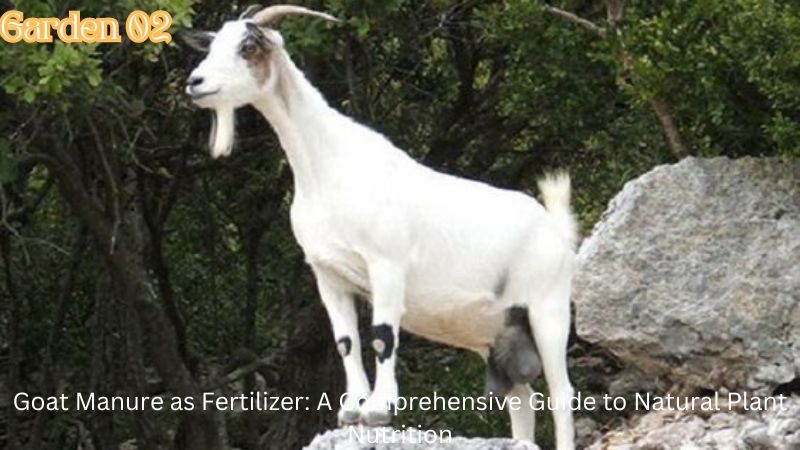
Goat manure offers a multitude of benefits, making it an excellent choice for both small-scale home gardeners and large agricultural operations. Here are some of the key advantages of using goat manure as fertilizer:
3.1. Rich in Nutrients
As highlighted earlier, goat manure is packed with essential nutrients that plants need to grow, thrive, and produce healthy yields. Its nutrient profile supports vigorous plant growth and improves soil fertility over time, ensuring that your garden or farm remains productive season after season.
3.2. Improves Soil Structure
In addition to providing nutrients, goat manure improves soil texture and structure. When incorporated into the soil, it adds organic matter, which enhances soil aeration, drainage, and water-holding capacity. This is particularly beneficial for heavy clay soils, which tend to become compacted, and sandy soils, which drain too quickly.
3.3. Enhances Microbial Activity
The organic matter in goat manure supports the growth of beneficial soil microbes. These microorganisms break down the manure and release nutrients into the soil, making them more available to plants. A thriving soil microbiome contributes to better soil health, nutrient cycling, and disease resistance.
3.4. Lower Risk of Burning Plants
Unlike other types of manure, such as chicken manure, which is highly concentrated and can burn plants if applied fresh, goat manure is milder and less likely to cause nutrient burn. However, it is still recommended to compost goat manure or allow it to age before applying it directly to plants, as fresh manure can sometimes contain pathogens or excess nitrogen.
3.5. Suitable for All Plants
Goat manure is versatile and can be used on a wide range of plants, including vegetables, flowers, shrubs, fruit trees, and lawns. Its balanced nutrient content makes it an all-purpose fertilizer that promotes overall plant health and productivity.
3.6. Sustainable and Renewable Resource
Using goat manure as fertilizer is an environmentally friendly and sustainable practice. Instead of relying on chemical fertilizers, which can degrade soil health and contribute to pollution, goat manure is a renewable resource that promotes long-term soil fertility. Additionally, it reduces waste by recycling animal droppings into valuable plant nutrients.
4. How to Use Goat Manure as Fertilizer
While goat manure is a fantastic natural fertilizer, it must be used correctly to achieve the best results and avoid potential pitfalls. Here are the different ways you can use goat manure in your garden or farm.
4.1. Composting Goat Manure
Composting is the best way to prepare goat manure for use in the garden. When goat manure is composted, it breaks down organic matter and stabilizes nutrients, making them more readily available to plants. Additionally, composting helps kill weed seeds, pathogens, and any harmful bacteria that may be present in fresh manure.
- How to Compost Goat Manure: Mix the goat manure with carbon-rich materials such as straw, leaves, or wood chips. Turn the pile regularly to ensure proper aeration and decomposition. Composting typically takes 3-6 months, depending on environmental conditions.
- Benefits of Composting: The resulting compost is nutrient-rich, safe to use, and improves soil structure and fertility without the risk of nutrient burn.
4.2. Using Goat Manure Fresh
While composting is ideal, goat manure can also be used fresh, particularly for top-dressing around established plants or trees. However, it’s essential to apply it sparingly to avoid overwhelming the plants with nitrogen or introducing pathogens.
- How to Apply Fresh Goat Manure: Spread a thin layer of fresh manure around the base of plants, avoiding direct contact with the stems or leaves. Work it lightly into the soil to promote nutrient release.
- Precautions: If applying fresh manure, avoid using it on root crops like carrots or potatoes, as they may absorb pathogens. Additionally, avoid using fresh manure during the growing season for leafy greens that will be harvested soon.
4.3. Goat Manure Tea
Goat manure tea is a liquid fertilizer that delivers nutrients quickly to plants. It’s easy to make and can be applied as a foliar spray or soil drench to boost plant growth.
- How to Make Goat Manure Tea: Fill a large container with water and add fresh or composted goat manure in a ratio of 1 part manure to 5 parts water. Let it steep for 5-7 days, stirring occasionally. Strain the liquid and dilute it with water before applying to plants.
- Benefits of Manure Tea: Goat manure tea provides an immediate nutrient boost, particularly during critical growth stages like flowering and fruiting. It can be applied directly to the soil or sprayed onto leaves for fast absorption.
5. Tips for Applying Goat Manure as Fertilizer
To ensure that you get the most out of your goat manure fertilizer, follow these practical tips for proper application:
- Apply in the Off-Season: For best results, apply composted goat manure in the fall or early spring before planting. This allows the manure to break down further in the soil, making nutrients more available to plants when they begin growing.
- Use Moderately: Goat manure is potent, so a little goes a long way. Overapplication can lead to nutrient imbalances, so it’s best to start with a small amount and adjust based on your plants’ needs.
- Rotate Manure Use: If you have access to multiple types of manure (e.g., chicken, cow, goat), rotate them to diversify the nutrient profile in your soil. Each type of manure has its strengths, and using a combination can help maintain balanced soil fertility.
6. Potential Drawbacks of Using Goat Manure
While goat manure is an excellent natural fertilizer, there are a few potential drawbacks to be aware of:
6.1. Pathogen Risk
Like all animal manure, fresh goat manure can carry harmful pathogens such as E. coli or salmonella, which can pose a risk to human health if used on edible crops. Composting the manure is the best way to eliminate this risk.

